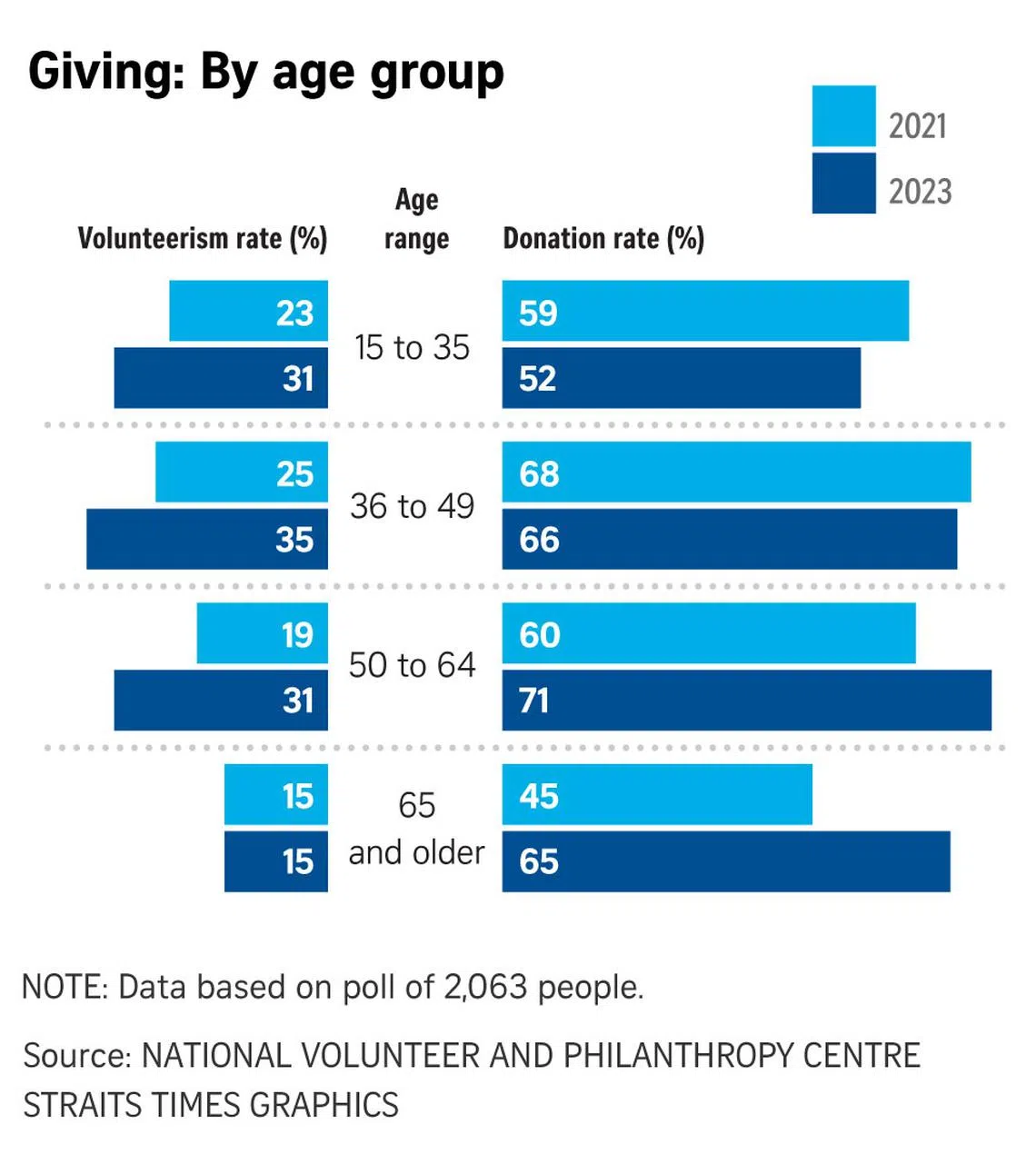Youth with less time and money find other ways of giving back: S’pore study
Sign up now: Get ST's newsletters delivered to your inbox

The National Giving Study 2023 found that youth were more likely to contribute to a cause by petitioning and voicing their opinions concerning social issues online.
ST PHOTO: GIN TAY
SINGAPORE - Young people are more inclined to contribute to society through ways that take up less time and money.
A study by the National Volunteer and Philanthropy Centre (NVPC) found that youth look for other ways of giving, such as online fund raising or speaking up for causes online. These actions go beyond traditional methods of giving like volunteering time and donating money.
This could be due to time and money constraints as more young people enter the workforce and start families, and hence have a greater need to save up for other priorities, the report by NVPC added.
These findings are part of the National Giving Study 2023
NVPC noted an increase in the volunteerism rate among youth from 23 per cent in 2021 to 31 per cent in 2023. Meanwhile, 15 per cent of seniors took part in volunteering, the same as in 2021.
Young people were also least likely to donate compared with other age groups, due to more financial constraints, the study said.
Ms Chan Kai Lin, 21, a second-year student at Singapore Management University, has been volunteering weekly at the Movement for the Intellectually Disabled of Singapore with her school community service club.
With no income, she is unable to give much in terms of money, but Ms Chan said she works within her means to help. In the wake of the humanitarian crisis in Gaza, she donated $50 to a Palestinian family via an online fund-raising platform.
The study found that 38 per cent of those surveyed gave to fund-raising campaigns via social media. Among these respondents, there were significantly more young people compared with the other age groups.
The other groups are adults aged 36 to 49 and aged 50 to 64, and seniors aged 65 and above.
Ms Chan said she would donate more if she were a working adult. For now, she will stick to giving her time to local communities.
“I don’t see volunteering as a burden or taking up my time. I think it’s fulfilling to interact with the beneficiaries.”
The study also found that youth were more likely to contribute to a cause by petitioning and voicing their opinions concerning social issues online.
Mr Muhamad Mamfizam, 24, a third-year student at the National University of Singapore, posts on social media platforms to speak up about causes he is passionate about, like the humanitarian crisis in Gaza.
He shares online resources in the hope of raising awareness about social issues. But he acknowledges that sharing online content lacks the intimacy of volunteering in person.
He believes that sustained volunteering is more meaningful, but such projects require a higher level of commitment.
He supports local pop-up events featuring small businesses that donate their proceeds to humanitarian efforts.
He is not alone as over half, or 56 per cent, of those surveyed deliberately avoided or bought products for ethical, environmental, or social causes. Among them, there were significantly more young people and adults.
Mr Mamfizam said: “I don’t hope to change the world, but I hope people might just stop to think, and go beyond just knowing about what’s happening in the world.”

Correction note: This story has been edited for clarity.


